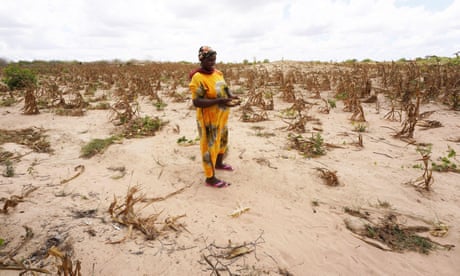SDG 1: Poverty
The group proposed a comprehensive reform of the global financial architecture to facilitate foreign investment, providing assistance to African nations in managing their debt burdens to unlock resources that can be applied to poverty reduction programmes.
Poverty reduction must be placed at the top of national development agendas with adequate resources allocated to it. Enhancing domestic governance and empowering the youth will also help to reduce poverty.
Participants also called for special attention to the needs of women, youth, people living with disability and other vulnerable groups and the expansion of social protection programmes.
SDG 2: Zero hunger
In response to the pressing need for agricultural transformation in Africa to reduce hunger, the group advocated for the adoption of policies that prioritise food security and equitable access to resources for all.
Augmenting financial resources for infrastructure and support services was identified as a critical component of agricultural development, while investing in climate-smart technologies, promoting diversification, and strengthening social safety nets will help to build resilience against crisis.
The group called for the engagement of governments, private sector entities, civil society organisations, and local communities in shaping agricultural systems that are inclusive, sustainable, and resilient.
SDG 13: Climate action
The group observed that Africa needs to mobilise more climate finance through innovative instruments such as debt swaps, carbon markets, blue bonds, and green bonds.
More contextual data must be collected and made available to support decision making and early warning systems must be strengthened to ensure timely response to climate threats.
While increasing funding is essential, it is equally important that countries are capacitated to access and properly utilise these funds. Collaboration and integration must be encouraged to build regional responses to crises.
SDG 16: Peace, justice and strong institutions
The group recommended strengthening government and legal institutions to protect human rights. Decision-making processes must also include wide stakeholder participation, including marginalised groups and the private sector.
To monitor progress towards the SDGs, the group recommended strengthening data collection efforts to improve decision-making and effective policy implementation.
Governments must also design effective policies to combat illicit financial flows and small arms trafficking, while post-conflict management must be emphasised to sustain peace and stability. They also called for the integration of human rights into policymaking.
SDG 17: Partnerships for the goals
The group underscored the importance of structured multi-stakeholder partnerships in addressing crises and advancing the SDGs.
Collaboration between governments, civil society, business, academia, and international organisations is essential for leveraging resources, expertise, and innovation to tackle complex challenges effectively.
It noted that strategic initiatives such as the African Continental Free Trade Area and the establishment of a climate-related Loss and Damage fund are critical to address systemic issues and build resilience to crises.
Increased investment in research and development is also essential for fostering innovation, it said. It also called for the integration of new technologies into policymaking, strengthening institutional capacity and collaboration with volunteer organisations to drive change at the local level.











